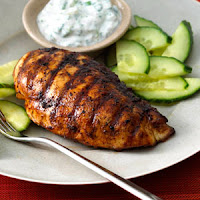Ever wonder if your favorite food has unique benefits for your health? I took a look at some new and old research done on food with health benefits for
Twin Cities Live. Take a look at what these foods may be doing to better your health.
Food to help prevent cavities: Raisins and Black Tea
-Raisins are loaded with naturally-occurring chemicals (the strongest being oleanolic acid) that are powerful antibacterial agents which prevent plaque formation and, therefore, keep the apparition of cavities and tooth decay at bay.
-Raisins natural chemical compounds are very powerful antibacterial agents that can inhibit and destroy specific oral bacteria.
**Researchers concluded: "Raisins are perceived as sweet and sticky, and any food that contains sugar and is sticky is assumed to cause cavities. But our study suggests the contrary. Phytochemicals in raisins may benefit oral health by fighting bacteria that cause cavities and gum disease."
Food to help you sleep better: Peanut Butter Sandwich or Half a Turkey sandwich
-A light snack before bed may help promote sleep. Eating a food rich in tryptophan along with a carbohydrate can help calms the brain and allows you to sleep better.
-Tryptophan is an amino acid that plays a role in the repair of protein tissues and in creating new protein. Tryptophan is converted into serotonin in the brain and serotonin is a natural sleep-inducing chemical. It also enhances the brain's ability to produce melatonin, the hormone that regulates your body's natural inner clock.
**Good sources of tryptophan include turkey, peanuts, bananas, milk and soy milk.
**Remember not to overdue it on the calories before bed as this may cause better sleep paired with weight gain.
Food that can help decrease PMS symptoms: Spinach and Fortified Cereals
-A study in the American Journal of Clinical Nutrition showed women who ate more spinach and fortified cereal had about a quarter lower risk of PMS. The researches aren’t sure if this is from thiamine and riboflavin or if the women who ate more of these vitamins had other habits that helped decreased the symptoms. The women who got their B vitamins from supplements did not have the same results.
-Either way it should prompt women to look at how much thiamine and riboflavin are in their diet.
-Women who reported eating about 1.9 milligrams of thiamine per day were less likely to come down with PMS. The rates were the same for women who ate about 2.5 milligrams of riboflavin per day compared to women who ate around 1.4 milligrams per day. That's about two to three bowls of fortified cereal, three quarters of a cup of dried beans, or about three ounces of red meat, for thiamine.
Food to help your Eyesight: Fish
-A dietary analysis done by Harvard suggests women who ate fish regularly had a lower risk of age-related macular degeneration (AMD).
-There preliminary data shows that fish oil, rich in Omega-3’s may not only prevent against cardiovascular disease but also protect women from getting age-related macular degeneration. The author of the study said about 9 million U.S. adults over the age of 40 have experienced some degree of AMD.
-The study found that women who ate one or more servings of fish every week had a 42 percent lower risk of AMD than those who consumed fish just once a month or less.
**Try adding salmon, mackerel, sardines, canned tuna or other fish to your weekly meals. If you like them all go with salmon. It’s also good for cognitive function and our skin
Food that will help your skin look healthier: Low-Fat Dairy Products
-One the most important components of skin health is vitamin A and one of the best places to get it is low-fat dairy products.
-Milk and low fat yogurt are both high in vitamin A. Yogurt also contains acidophilus, the "live" bacteria that is good for intestinal health. A lot of experts say that good digestion will also help us have healthy looking skin.
Food to help prevent wrinkles: Avocados and Olive Oil
-A study in the Journal of American College of Nutrition showed that people with high intakes of olive oil had less wrinkles than those who had high intakes of butter.
-Monounsaturated fats are found in olive oil, almonds and avocados. Avocados contain about 50% of its calories from monounsaturated fats and also contain fiber and healthy B-vitamins so eat up, but in moderation since fat contains more calories than protein or carbohydrates.





